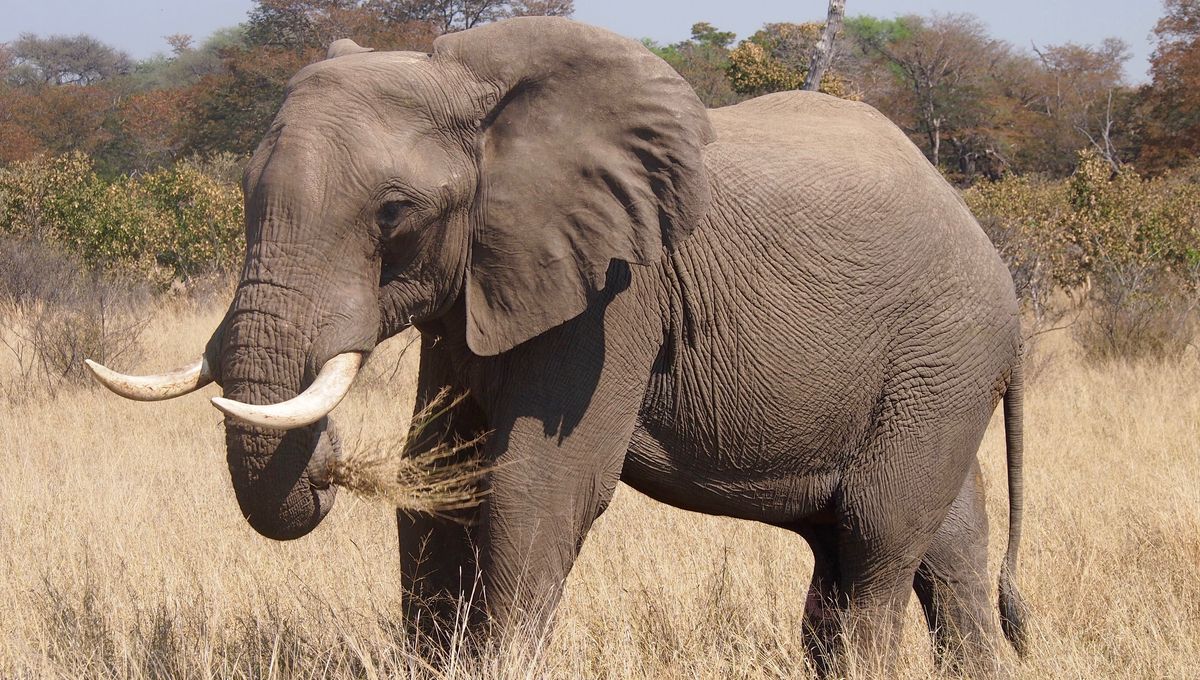
Zimbabwe’s government has announced plans to cull 200 elephants, in an effort to manage growing numbers of the animals amid an ongoing severe drought.
It’s estimated that Zimbabwe is home to nearly 100,000 African elephants (Loxodonta species), but speaking in parliament on August 11, the country’s environment minister Sithembiso Nyoni said that was “more elephants than it needed”, the Guardian reported.
As a result, the country’s wildlife authority, ZimParks, has now been ordered by the government to begin the culling of 200 elephants. According to ZimParks director general Fulton Mangwanya, this is due to take place in regions where there has been human-elephant conflict.
It’s not the first time that elephants have been culled in Zimbabwe. The first major cull took place in 1965 after concerns were raised about the impact of the animals on vegetation, after an increase in access to water saw the population boom. Another series of culls occurred in the 1980s, with the last happening in 1988.
This time, the decision comes amid an ongoing and severe drought that’s believed to have been caused by El Niño, and saw Zimbabwean authorities announced a nationwide state of disaster back in April.
Late last year, this drought was thought to be responsible for the deaths of dozens of elephants in Hwange National Park, the country’s largest natural reserve. It also led to massive crop failure and as a result, rapidly deteriorating food insecurity that is predicted to continue into next year.
The elephant cull, as well as aiming to reduce demand on water supplies, could represent a food resource to, at least in part, tackle the crisis. Back in August, Namibia’s government – which has also declared a national state of emergency due to the drought – announced plans to cull over 700 animals, including 83 elephants, to provide meat.
“We are having a discussion with ZimParks and some communities to do like what Namibia has done,” Nyoni told Voice of America, “so that we can cull the elephants and mobilize the women to maybe dry the meat, package it, and ensure that it gets to some communities that need the protein.”
There are concerns, however, about the message that it sends regarding animal conservation.
“Elephants are protected by international conventions, such as CITES [the Convention on International Trade in Endangered Species]. They are in a world heritage,” said Farai Maguwu of the Center for Natural Resource Governance, speaking to Voice of America. “They are not like goats, which a person can just say, ‘I want to slaughter a goat and feed my family.’ There are rules and procedures.”
On the other hand, conservationist and CEO of the Namibian Chamber of Environment Christ Brown told the Guardian that the region’s habitat could be seriously affected if the elephant population is allowed to continue unchecked.
“They really damage ecosystems and habitats,” Brown explained, “and they have a huge impact on other species which are less iconic and therefore matter less in the eyes of the Eurocentric, urban armchair conservation people. These species matter as much as elephants.”
Source Link: Zimbabwe Government Orders First Elephant Cull In Nearly 40 Years